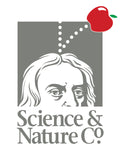
FACTS: Heart disease is by far the leading cause of death in much of the world. Over 500 million suffer from cardiovascular disease, which includes heart attacks, stroke and other types of heart disease. One in three people die from these diseases, taking more lives than cancer, flu, pneumonia and accidents combined. Still, heart health has been a huge success story for modern medicine. Since 1950, the death rate from heart disease has dropped from about 600 to under 200 per 100,000 people in the USA. Even with the improvements in prevention and treatments, we are more likely to die from heart disease today than 100 years ago, largely because other things used to kill us first.
The heart muscle needs a constant flow of blood supplied by the coronary arteries. Any restriction in this supply means oxygen and nutrients cannot reach the muscle. During a heart attack, or myocardial infarction, the heart muscle is suddenly cut off from blood flow. This starves an area of the heart causing tissue death. A heart attack can cause severe chest pain, sweating, shortness of breath and loss of consciousness. Women and men experience heart attacks differently. Women are more likely to have abdominal pain and nausea, and more likely to have heart problems misdiagnosed. The key to treatment for any heart attack is speed to remove the blockage.
Other types of heart disease include atherosclerosis, angina, abnormal heart rhythms, congestive heart failure, heart muscle disorders and valve disorders. Atherosclerosis is the narrowing and stiffening of arteries due to the buildup of cholesterol in the blood. When this occurs in the coronary arteries it can lead to a heart attack or angina, which are chest pains indicating the heart is not receiving enough blood. Heart attacks differ from cardiac arrest, when the heart stops pumping often due to a failure in electrical signaling. A heart attack often leads to cardiac arrest, but you can suffer a cardiac arrest for other reasons.
Factors that contribute to heart disease are high blood pressure, high cholesterol, diabetes, smoking, drinking alcohol, obesity, an inactive lifestyle and genetics. Yet many heart attacks occur in people who are fit and healthy with no obvious risks. Living a virtuous life helps improve your chances of escaping heart disease, but there are no guarantees. Preventing heart disease should be a way of life – eat a healthy diet, live mindfully, exercise and learn the facts about the heart.

